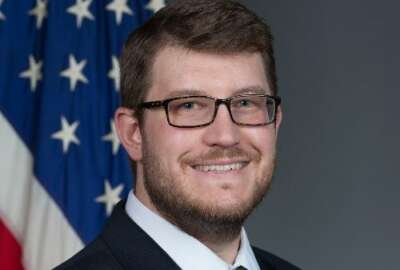
TSA using evidence-based decisionmaking to justify plan to shutter 3 programs
Having data behind which programs work and which don't can make some tough budget decisions at TSA go a little more smoothly.
Best listening experience is on Chrome, Firefox or Safari. Subscribe to Federal Drive’s daily audio interviews on Apple Podcasts or PodcastOne.
Agency appointees have defended their fiscal 2020 budget requests — cuts and all — on Capitol Hill over the past few weeks. But having data behind which programs work and which don’t can make some tough decisions go a little more smoothly.
Patty Cogswell, the acting deputy administrator of the Transportation Security Administration, said the current budget environment, in which the agency expects to receive a flat $7.8 billion for fiscal 2020, has led to the agency making some tough decisions.
“This [FY 2020] president’s budget has zeroed funding for three programs that are near and dear to Congress’ heart, not because we thought it was a brilliant idea, but because top-line is top-line, and you have to make hard choices when you’re operating within top-line,” Cogswell said Tuesday during a panel conversation at American University’s School of Public Affairs, sponsored by Guidehouse.
Those zeroed-out programs include funding for the Visible Intermodal Prevention and Response (VIPR) teams which patrol aviation, rail and marine facilities, the Law Enforcement Officer Reimbursement Program and TSA staffing at the exit lanes of airports.
In addition to a flat budget, TSA has seen about a 5% year-over-year increase in airline travel that has put an added strain on its workforce. Because of that, Cogswell said she would rather zero out those three programs, rather than do a “peanut-butter spread” of those cuts across several well-performing programs.
“[It will] do so much damage to so many programs, it actually reduces my overall effectiveness,” Cogswell said.
More agencies may soon find themselves adopting this kind of evidence-based decision-making not just in the budget space, but more generally in policy-making.
Federal data strategy
Federal Chief Information Officer Suzette Kent, speaking at an AFCEA conference Wednesday, said she’s hopeful that the administration’s Federal Data Strategy and implementation guidance for the Foundations for Evidence-Based Policymaking Act will be out in the next 30 days.
Related Stories

Evidence-based policy bill passage sets stage for upcoming federal data strategy
President Donald Trump signed the bill in January. Through that legislation, all 24 agencies subject to the Chief Financial Officers Act must name a CDO before the end of July.
While the Government Accountability Office relies on data to conduct its reports on agency programs, Nancy Kingsbury, managing director of applied research and methods at GAO, said the agency is rethinking how it tracks popular reports.
“We actually measure the number of hits on Twitter, and the number of hits on LinkedIn, and the number of hits that a particular report gets, as well as the old measure we used to have, of the number of downloads it gets off our website, because the whole way of communicating today, if you’re trying to influence other parties is different,” Kingsbury said.
However, even a trending report on social media might not be enough to move GAO’s priorities around. The agency gets about 800 requests a year from Congress, but prioritizes reports mandated by law, followed by requests from congressional committee leadership. However, the agency currently lacks the capacity to fulfill requests from individual members of Congress who don’t serve in leadership roles.
The President’s Management Agenda lists leveraging data as a strategic asset as one of its cross-agency priority goals, but ensuring data quality also serves as a cornerstone to that objective.
Michael Smith, the director of the State Department’s Bureau of Political-Military Affairs, said his office plays a major role in clearing landmines and improvised explosive devices across the world, but added that his office struggles to get accurate data on training from partners in the field.
“The numbers that we got back from that were really, really, high and not credible. We just haven’t ever really figured out how we can get really credible information from our partners,” Smith said.
Copyright © 2025 Federal News Network. All rights reserved. This website is not intended for users located within the European Economic Area.
Jory Heckman is a reporter at Federal News Network covering U.S. Postal Service, IRS, big data and technology issues.
Follow @jheckmanWFED




